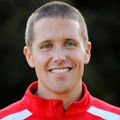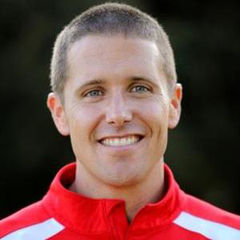Magazine covers, business cards and Instagram posts with lean, tanned, scantily clad depictions of the human body have all but become a trademark for the fitness industry. Many current and potential fitness clients, as well as a large part of society, have been trained to associate these morphological manipulations of human form with both fitness and health.
Of course, this raises an important question: How does this affect the market value of a health and fitness professional who fails to match up to these high aesthetic standards set by marketing teams instead of educated health professionals? Do personal trainers need six-pack abs and ultra-lean physiques to demonstrate their mastery of healthy living?
“No” or “Absolutely not” would seem to be the right answer. An uber-lean physique says very little about a health and fitness professional’s ability to help other people. However, when considering the complexity of marketing and attaining clients in the personal training space, “it depends” would be a more accurate answer. While many of us would like to think the industry as a whole should be based on credential, experience and individual fortitude, it’s important to remember that we are working with impressionable human beings.
As humans, vision dominates our sensory system. How things appear to us is often the first criteria we use when deciding to take action. Without council, individuals seeking the general services of a health and fitness professional may or may not have the time, interest or knowledge to investigate credential, experience or overall professional aptitude. In this case, they rely on the snap judgement of a professional’s physical appearance to establish his or her level of credibility.
It is worth noting that a lot of money is made from highly reactive, impulsive decisions. “Do your pants feel tight? Buy this now!” “Feel bad about your body? Take this pill!” “Want to take advantage of our New Year’s personal training special? Sign up today!” In these situations, the goal is a fast sale, so the simpler the sensory (visual) appeal, the more effective the sales process.
Considering this aspect of large-scale human nature, if you are a health and fitness professional looking to sell general “fitness” to anyone and everyone via television, widely distributed DVDs/online programs, fat-loss supplements, etc., matching a widely recognized aesthetic standard can be important. If you want to optimize your earning potential with a general, non-specific product, you need to appeal to the general, non-specific public image of what that product is.
Certain populations of potential clients, such as models, fitness competitors, actors/actresses, elite fitness buffs, etc., may make their living or maintain a sense of personal identity with their physiques. This type of person will often look for a professional who shares and understands the same obsession. Although this is an innumerably small population, professionals that fit a physical standard are at an advantage.
While these realities may not be a fair or even accurate assessment of fitness and health, they are human nature. It may explain why even at fitness industry conferences, lines of health and fitness professionals extend out the doors when a “celebrity” trainer offers a class, regardless of whether or not that trainer has never spent a single day learning the science of the human body.
Fitness professionals are not impervious to appearance-based fandom.
If you are an educated, experienced and passionate career health and fitness professional, the “6-pack” phenomenon can be frustrating. We understand we should be role models for health, but we also know it isn’t necessary to achieve single-digit body fat to be fit and healthy. For some, the process by which to achieve such a condition can actually compromise physical and mental health. Furthermore, most professionals favor a “long-term” approach to fitness and health by introducing realistic habits instead of resorting to short-term extreme measures to achieve extreme physical goals.
The good news is that there are literally millions of current and potential clients whose specific needs for a professional surpasses the “six-pack” assessment. The most important criteria for these people is finding a professional who is relevant to them and their specific needs for health and fitness. These discerning individuals are often loyal, long-term clients who are willing to pay more for services.
However, the clients who are above the need for a flash-in-the-pan Instagram 6-pack trainer are not willing to do any sort of fitness with just anyone. They want to feel they are working with an expert who can offer specific solutions to their specific problems. They often seek a professional based on reputation. This reputation can be formed through word of mouth, distribution of relevant and qualified information (blogs, books, website, videos, etc.) or other forms of professional recognition.
Unfortunately, many qualified and passionate health and fitness professionals are afraid to establish themselves as experts. They continue to try to sell general fitness to anyone and everyone. When a health and fitness pro offers a general product to a general demographic, the leaner physique will often have the upper hand in acquiring new clients.
How does a professional establish him or herself as an expert, forgoing the need to compete for Instagram likes when attaining clients? By learning everything there is to know about the struggles, fears and needs of the types of clients they wish to serve. This may mean attending workshops, lectures and conferences frequently. It could mean reading relentlessly. It could mean interning under other successful professionals who work with this group.
Of course, the process doesn’t stop at learning. Once a professional develops unique knowledge, he or she must figure out how to share this knowledge in a relevant manner at the gym/studio, in the community and beyond. Fortunately, it has never been easier to distribute articles, videos and other resources to large numbers of people through social media. Potential clients don’t want manifestos, however. They want short, concise, information presented in language they understand. They want to feel the trainer understands, empathizes and can provide solutions to their specific struggles.
Success in the fitness industry is a matter of striking a balance of knowledge and communication. Too many of the professionals complaining about “6-pack” trainers are great at acquiring knowledge, but poor at connecting and becoming relevant to clients. Many of the scantily clad social media stars have very little scientific knowledge, but have mastered connecting and providing relevant material for their clients.
When a professional commits to accumulating knowledge and experience, and then shares it in an extremely relevant manner to connect with current and potential clients, the need to compete for the “low-hanging fruit” of visual appeal dissipates significantly.
As health and fitness professionals, it is important to work hard to become role models for fitness and health. However, if we want to help move society past the “6-pack” image of fitness, we have to commit to working our knowledge, experience and most of all, communication muscles to create a broad and lasting impact on our current and future clients.
ACE’s Personal Trainer Certification is backed by 30 years of science-based research. Learn more.




 by
by 





 by
by